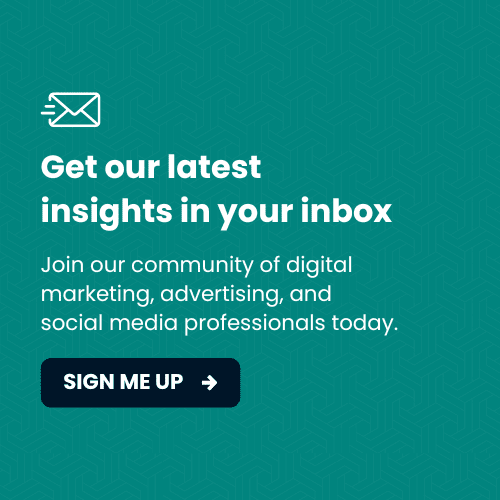We’ve all been there — you want to look at something on a website, but you can’t get past the pop-ups asking you to join a mailing list, download an eBook, or listen to a podcast.
I understand what these businesses are trying to do to build their funnels, but their actions can cause the exact opposite effect. Customers become annoyed and find what they want elsewhere, most likely at a competitor.
We are all competing for attention now more than ever these days. How can you capture attention without becoming an annoyance or distraction?
It’s a delicate balance, but I have a few ideas based on our PPC advertising approach here at Ten26 Media.
Mastering the Attention Economy
The most effective marketing, whether PPC advertising or otherwise, happens at the intersection of your business goals and a customer’s needs. Come on too strong before they’re ready and you become an annoyance; wait too long, and you’ve lost them to someone else.
“The more informative your advertising, the more persuasive it will be.” David Ogilvy
Luckily, we now have more data than ever available to tell us what someone wants and when they want it. Any time someone types a search phrase into Google, they are actively raising their hand and saying they want help from the Internet to find a solution.
Google ads help people meet their search needs while also directing them to your business. You have their undivided attention when they come to your site because they want to be there. Even if they don’t stick around, you still receive valuable information that you can use to retarget them down the road (more on that later).
If you get someone to your site from a Google ad and the first thing they see is a pop up for a newsletter sign up, is that the best use of the attention they’ve given you? Of course not.
Be mindful of where someone is in the customer journey before you make any type of ask like that. You can use tracking cookies to determine whether someone has visited your website before and serve up content accordingly.
Social Media Is Not The Enemy
There are plenty of stories in the news about how social media platforms are stealing everyone’s data and turning people into a commodity. On the other side of the coin, how many products or services have you bought or signed up for as a result of seeing an ad on Facebook or Instagram? Probably more than you care to admit.
The point is that these platforms are not going away any time soon and still very much have a place in the advertising world. While people are more aware of how their data is being used on social media, the need to solve problems through products and services does not change, and the potential to meet those needs through advertising is still there if it’s done correctly.
Our philosophy at Ten26 Media is to use paid search and social media advertising to put the right content in front of the right audience at the right time. With those three elements in place, advertising benefits the consumer, not a distraction.
Strategy In Action
One great example of this strategy in action is the campaigns we launched for The Webster Apartments, a housing community that has provided safe and affordable co-living spaces for professional women in New York City since 1923!
Moving to a new city is a life-changing decision for these young professionals, and it requires more than one ad or website visit for them to make such a significant commitment. In some cases, it can be as long as six months from a first-time website visit to conversion. We also found that Webster’s target demographic — young, urban professionals and college students — were likely to find the site by searching on their phones and return later via their computers to complete the housing application.
Based on this insight, we created a strategy that combines the power of Google search with the reach of Facebook’s ecosystem to deliver impactful ads to Webster’s ideal audience.
Their Google Ads campaigns are optimized around search terms related to women’s housing in New York City, organized by a domestic and international audiences. These campaigns have engaging ad copy that leads prospective guests to an optimized landing page sharing the benefits of being a part of the Webster community.
After visiting the site and learning more about the unique qualification process, we then utilize a retargeting ad campaign on Facebook to encourage people to complete the online housing application.
The Facebook retargeting campaign provides gentle reminders to return to the website without being too overt about pushing something customers don’t want or distracting them with advertising when they are not ready for it.
As a result, The Webster Apartments continued to nurture its prospective guests and drew more housing applications from a more diverse group of applicants over time.
Learn More
Webster Apartments is just one example of how our approach has helped us make the most of the available data to capture attention at a time when doing so is harder than ever. Contact us to learn more about how we can do the same for your brand.



